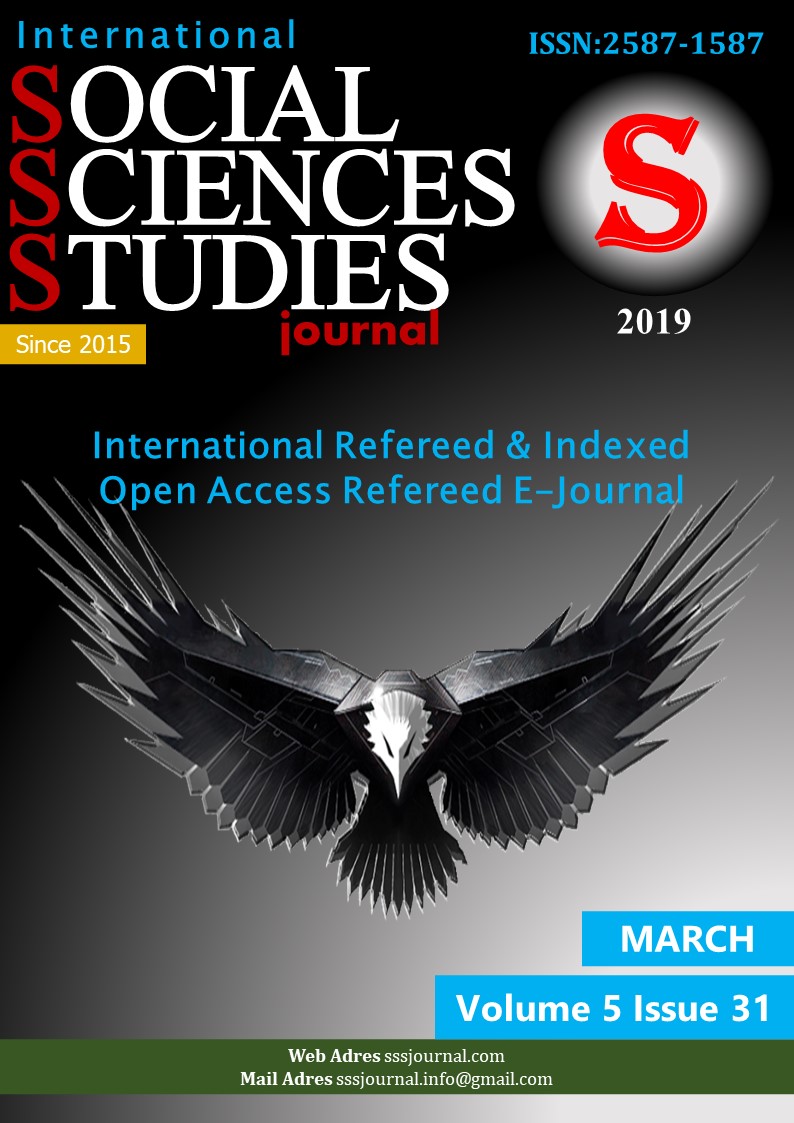Azerbaycan Petrol Tüketimi ve Ekonomik Büyüme Arasındaki Nedensellik İlişkisinin Araştırılması Ve Hollanda Hastalığı
Author :
Abstract
Geçiş ekonomisi niteliğinde olan Azerbaycan’ın ihracatında petrol ve petrol ürünleri önemli bir yere sahiptir. Petrol sektörü büyümenin temel kaynağı niteliğinde olup, sanayi üretiminin büyük bir bölümünü oluşturmaktadır. Bu durum Azerbaycan’ın “Hollanda Sendromu-Hastalığı” olarak adlandırılan, petrol sektörünün hızlı gelişimi karşısında diğer sektörlerin gelişmemesi veya çöküşüne neden olması şeklinde ifade edilen bir sorun yaşadığını göstermektedir. 1994 yılında imzalanan “Asrın Anlaşması” sonrasında petrol sanayisine yapılan yatırımların ülkenin GSYİH artışına etkisi, diğer sanayi dallarına oranla daha fazla olmuştur. Bugün ülkede en çok tartışılan konu, petrol gelirlerinin nasıl harcanması gerektiği ve hangi petrol dışı sektörlerin geliştirilmesine kanalize edileceğidir. Bu çalışmada Azerbaycan’ın bağımsızlık dönemi sonrası, uyguladığı enerji politikaları ve petrol tüketimi ile ekonomik büyüme arasındaki ilişkiler ele alınmaktadır. 1990-2016 dönemi arasındaki yıllık veriler kullanılarak, kişi başı petrol tüketimi (kg) ile kişibaşı GSYİH (ABD doları ile 2010 sabit fiyatları ile) arasındaki nedensellik ilişkisi araştırılmıştır. Bunun için Granger iki değişkenli eşbütünleşme analizi uygulanmış ve iki değişken arasında eşbütünleşme ilişkisi olduğu belirlenmiştir. Yapılan analiz sonucunda petrolün ekonomik büyümedeki hızlandırıcı etkisi belirlendikten sonra, Azerbaycan’ın içinde bulunduğu Hollanda Hastalığının ekonomide yarattığı etkiler ele alınacak ve sorunun çözümü konusunda uyguladığı politikalar ile elde edilen sonuçlar değerlendirilecektir.
Keywords
Abstract
ABSTRACT Oil and petroleum products have an important place in the exports of Azerbaijan, which is a transition economy. The petroleum sector is the main source of growth and constitutes a large part of industrial production. This shows that Azerbaijan is experiencing a problem called “Dutch Syndrome-Disease”, which means that other sectors are not developing or collapsing in the face of the rapid development of the oil industry. Investments made in the petroleum industry after the "Asrın Agreement" signed in 1994 have had a greater effect on the GDP growth of the country than other industries. Today, the most debated issue in the country is how to invest in oil revenues and to channel into the development of non-oil sectors. In this study, the energy policies of Azerbaijan and the relations between oil consumption and economic growth are discussed. Using the annual data between 1990 and 2016, the causality relationship between per capita oil consumption (kg) and per capita GDP (with US $ and 2010 fixed prices) was investigated. For this, Granger bivariate cointegration analysis was applied and it was determined that there was a cointegration relationship between two variables. As a result of the analysis, after determining the acceleration effect of oil on economic growth, the effects of the Dutch disease in Azerbaijan on the economy will be discussed and the results obtained with the policies implemented in the solution of the problem will be evaluated.
Keywords
- Aras, O. N. (2006). “Asrın Anlaşması ve Azerbaycan Ekonomisine Etkisi”, Akademik Araştırmalar
- Aras, O. N. (2006). “Asrın Anlaşması ve Azerbaycan Ekonomisine Etkisi”, Akademik Araştırmalar Dergisi, 30: 41-59.
- Aras, O. N. (2008). Azerbaycan’ın Hazar Ekonomisi ve Stratejisi, Derin Yayınları, İstanbul.
- Arı, A. & Özcan, B. (2012). “Hollanda Hastalığı: Gelişmekte Olan Ülkeler Üzerine Bir Uygulama”, Sosyoekonomi, 2012 (2): 153-172.
- Bal, H. (2011). İktisadi Gelişme ve Doğal Kaynaklar: Geçiş Ekonomileri Çerçevesinde Bir İnceleme, Çukurova Üniversitesi Sosyal Bilimler Enstitüsü Dergisi, 20 (1): 87-104.
- BP, (2017). BP Statistical Review of World Energy, June.
- Dickey, D. A. & Fuller, W.A. (1979). “Distribution of the Estimators for Autoregressive Time Series with a Unit Root”, Journal of American Statistical Association, Vol. 74: 427-431.
- Dickey, D. A. & Fuller, W.A. (1981). “Likelihood Ratio Statistics for Autoregressive Time Series With Unit Root”, Econometrica, Vol:49, No.4: 1057-1073.
- Enders, W. (2004). Applied Econometric Time Series, 2’nd Edition John Wiley&Sons Inc. USA.
- Engle, R.F. & Granger, C.W..J. (1987). “Co-Integration and Error Correction Representation, Estimation, and Testing”, Econometrica, Vol.55, No.2: 251-276.
- Gurbanov, S. (2012). Hollanda Hastalığı, Akis Kitap Yayıncılık, İstanbul.
- Mercan, M. & Göçer, İ. (2014). “Orta Asya Cumhuriyetlerinde Hollanda Hastalığı Riski: Ampirik Bir Analiz”, Hacettepe Üniversitesi İİBF Dergisi, 32 (2): 251-274.
- Kwiatkowski, D.; Phillips, P.C.B.; Schmidt, P., & Yongcheol, S., (1992), “Testing the Null Hypothesis of Stationarity Against the Alternative of A Unit Root”, Journal of Econometrics, 54: 159-178.
- Mukhtarov, M. (2017), Bağımsızlık Sonrası Azerbaycan Ekonomisi ve Hollanda Hastalığı AçısındanDeğerlendirme, Adnan Menderes Üniversitesi, Sosyal Bilimler Enstitüsü, İktisat ABD, Yayınlanmamış Yüksek Lisans Tezi, Aydın.
- Phillips, P.C.B. & Perron, P. (1988), “Testing for A Unit Root In Time Series Regression”, Biometrika, 75(2): 335-346
- Riyazi, İ. (2017).“Hollanda Hastalığının Sektörler Üzerine Etkisi: Suudi Arabistan ve İran’a Yönelikİncelemeler”, Atatürk Üniversitesi, Sosyal Bilimler Enstitüsü, Yayınlanmamış Yüksek Lisans Tezi, Erzurum.





